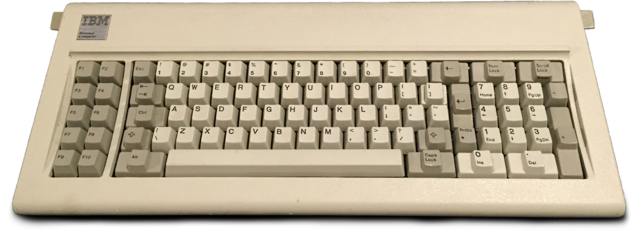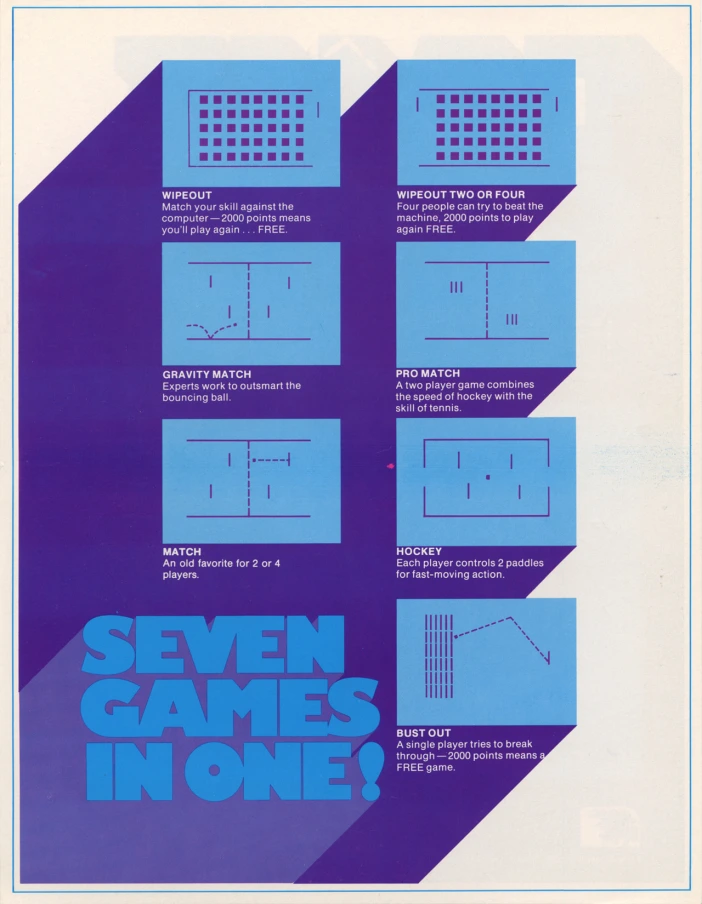Friends, this article doesn’t have a lot to do with the normal stuff I blog about. Yes, I suppose I could tell you it ties into our general discussion of consumer electronics. But honestly, that’s not why I’m writing it. I’m writing it as a long overdue apology to someone the world seems to have forgotten, and who doesn’t deserve to be forgotten.
Stage 1: The history of breakout
In the early 1970s, there was a lot of interest in creating video games for arcades. There are a lot of people who claim to have created the first video arcade game. It really depends on who you talk to. One thing we can say for sure is that one of the first video games to have any sort of high profile at all was called Space War. It was created in 1962 at MIT and designed to run on the Digital Equipment PDP-1, one of the first electronic computers. I could go into a lot of detail on that computer, but that’s a story for a different time.
Space War (or possibly Spacewar!, it’s hard to know for sure) led a young person named Nolan Bushnell and his partners to create an arcade version called Computer Space. The game wasn’t terribly easy to play and most sources list it as a failure. However, it did lead Bushnell to form a company whose purpose was to create video games. That company was called Atari. I’m sure you’ve heard of it. Its story is an interesting one, but again that’s not the purpose of this article.
Video game success and inevitable lawsuits
Atari’s first success was Pong, which may or may not have been derived from a similar home game called the Magnavox Odyssey. Pong introduced the video game controller as we know it today, in a very simple form. Being easier to play and understand, it was much more successful. You can watch a video of Pong’s gameplay here; for some reason its owner won’t let me embed it.
Magnavox’s lawyers so strongly felt that they had invented Pong that they sued Atari and won. Atari, led by Bushnell, set out to create a game that wouldn’t require a royalty payment. They knew how to build Pong, and they wanted to come up with something that would use a lot of the same hardware without infringing on copyright.
Here’s where Steve Jobs comes in
Yes, that Steve Jobs. It’s clearly documented that Steve Jobs worked for Atari in the early 1970s before starting Apple with Steve Wozniak. There’s ample evidence that Jobs worked on a game that allowed users to aim a ball at a wall to break pieces out of it. Jobs himself bragged about his participation in creating Breakout to locals, and the internet seems to agree that he was a primary force in creating the game.
The arcade version of Breakout was popular enough to fund Atari’s move to home video games, and Breakout for its home video console was a very early popular title. It went on to spur lots of imitators. You can even find versions on app stores today. No, it wasn’t Steve Jobs’ greatest achievement. But, the internet does credit him with it nonetheless. I’d heard the story many times even before it was published online. And honestly, I believed it. Wouldn’t you?
A particularly interesting incident happened here
In the late 1980s, I was employed in Boca Raton, Florida at a company that sold and repaired computers. It was housed in this building, although back then it was pale grey and I don’t recall any trees there.

The company, known as Archive Systems, was largely involved in early forms of computer networking and selling what were known then as “PC Clones.” Such computers mimicked the performance of real IBM PCs but at a lower price, and were easily customizable.
Because IBM was, at the time, headquartered in Boca Raton, it was common to meet a lot of people who made grand claims. I remember one guy who said he’d created the original IBM PC keyboard. This keyboard, was hated by nearly everyone. It had the CAPS LOCK key on the lower right, just where you’d never look for it. The zero on its number pad was misaligned to the rest of the pad, making it hard to use. I thought it was a weird thing to brag about.

But you heard those kinds of stories all the time. Another fellow I met later claimed to have invented Ctrl-Alt-Del. Again, sort of a weird brag.
It was there that I met Larry Leppert. He was hired as part of the Service Department. I don’t recall that he stayed long.
What I remember about Larry Leppert
Larry seemed an odd sort of guy. I imagined him being about 50 years old. Of course, I was quite young then and he could have been younger too. He didn’t fit in very well at Archive Systems. I remember his name today because I think we initially bonded about being two people who had the same first and last initial. Again, an odd thing to brag about. But Larry Leppert liked to brag. At least that’s how I remember it today. He bragged about quite a bit. He claimed his travels had taken him many places. And, when he found out I liked computer games, he bragged about creating Breakout.
I think even then I had heard the story of Steve Jobs creating Breakout. I don’t remember if I called Larry on this story. Most likely, I probably didn’t. He had so many stories. It was just hard to keep track. Still, for some reason, I remembered him going into detail. He talked about how his Breakout game wasn’t really “programmed.” It was a mess of wires and general purpose circuits. What I do remember was, Larry was bitter about this story. He said he never got credit for Breakout. I remember him saying his life would have been different if he had.
I tucked this story in the back of my brain and moved on with my life. For some reason, though, Larry Leppert’s name came back into my head about three years ago.
The story takes a turn
It seems to me I was talking to a coworker about the weird people I’d met in my life. And yes, I could go on for days about the weird people I’d met. For some reason, I told the story of Larry Leppert, Breakout Bragger. At that point I’d gone almost 30 years believing that Larry Leppert was just making stuff up. And then, on a whim, I googled “Larry Leppert Breakout.”
That took me to this article. The article is mostly concerned with proving that Steve Jobs created Breakout. However, there’s an interesting paragraph:
There is one piece of evidence not yet brought up: Atari wasn’t the first to release a Breakout-style game – and no, we’re not talking about Clean Sweep. In 1975 a group of disillusioned Atari employees including two former salesmen – Pat Karns and Satish Bhutani – along with engineer Larry Leppert split off from the company to form Fun Games. Their second product was a multi-game cabinet called Take Seven, and one of the games included over their previous Take Five model was a game called “Bust Out”. As can be seen on the game’s flyer, it is a horizontally oriented Breakout-type game (Smith).

Take a look at the bottom right and you’ll see a game that looks an awful lot like Breakout.
The article goes on to say that Atari’s Breakout was delayed for a year, possibly to clear any legal challenges from Fun Games. Fun Games didn’t last long, and its founders spread to the four winds. I searched for other evidence of Larry and Breakout and found similar stories as well. They may all be false, but there’s no reason to think so.
I don’t know if Larry Leppert is still around but…
I couldn’t find any contemporary evidence of him. There’s a Twitter with one photo and two tweets. There’s a barren LinkedIn that is very likely him. I couldn’t find an obituary either. So it’s hard to know. I’m kind of hoping that he’s still somewhere. Because, I want to say, Larry, I apologize. I didn’t believe you. I thought you were just bragging. Honestly I thought you were kind of a weirdo, and not in a good way. I dismissed your claims. You disappeared from my life, but clearly I still thought of you.
So, I personally wanted to to write this article to raise awareness of this story. If Larry’s still out there, it would be great to hear the story as it happened. And, if any of you hear stories that sound impossible, give them some thought. It may just be that they’re true. If Larry Leppert’s story is any indication, they are.

